- Home
- Howard Jacobson
The Finkler Question Page 17
The Finkler Question Read online
Page 17
‘Gaza burns and we quibble over efficacy!’ Finkler remonstrated.
A sentiment which could have been said to meet with universal approval had Finkler only approved it himself. In fact, he wished he hadn’t said it. Gaza had galvanised the movement as it had galvanised the country but for his part, perhaps because he liked to lead events not follow them, Finkler could have looked the other way as far as Gaza was concerned. Gaza didn’t do it for him. The philosopher in him recoiled from all the talk of massacre and slaughter on the streets. You keep the big unequivocal words for the big unequivocal occasions, Finkler thought. And there was an illogicality in charging the country he didn’t choose to name with wanton and unprovoked violence while at the same time complaining its bombardment of Gaza had been disproportionate. Disproportionate to what? Disproportionate to the provocation. In which case the operation had not been unprovoked.
Logically, too, disproportion was a dog’s dinner of a concept. How do you measure? Do you trade rocket for rocket, life for life? Are you, once provocation is conceded, not permitted to mete out retribution that will put paid to it?
He was thinking beyond the specifics. The Israyelis were out of control. He didn’t doubt that. But what is true in the individual instance has to be true in the general. And what his fellow ASHamees were saying in this instance could easily be shown to be nonsense when applied elsewhere. He did what was required of him; he drafted letters and stood on platforms, but his heart wasn’t quite in it. The frightening part was wondering if he might just start forgetting what he was ASHamed of. Was there such a thing as a Gaza-induced Alzheimer’s?
Prior to Gaza – and Gaza, he hoped, was his dirty little secret – the ASHamed Jews had pronounced themselves largely satisfied with his de facto leadership. He was seen to have given the fledgling movement a populist intellectualism which fully justified their original wooing of him.
Shortly after the Kabbalah fracas it was agreed with the club that they could start with dinner in the restaurant, in the course of which they would lower their voices and keep the conversation uncontroversial, and then move up to a private room on the second floor where they could talk without fear of being overheard or interrupted. Not even a drinks waiter would disturb them, if that was how they wanted it. This gave a clandestine and even dangerous savour to their deliberations.
It was here, about two years into his association with the group, that Finkler felt, for the first time since he’d joined – since, not to beat about the bush, he’d as good as fathered it – that there was growing opposition to his influence. He wasn’t sure what caused it. Envy, presumably. Even the best causes are susceptible to envy. He had written too many of the group’s letters. He had put himself forward for too many editions of Newsnight and the Today programme. He had taken away something of the group shame and appropriated it to himself. Sam Finkler – the ASHamed Jew.
‘They’ll soon realise their mistake,’ Tyler had prophesied. ‘With a greedy bastard like you around they’ll soon discover how hard it is to get their own share of shame.’
But you can detect envy, Finkler believed, in the way people look at you when they think you’re not looking at them, and in the way they stop being able to listen to you, as though every word you utter is a trial for them, and this was a less personally based, more ideological, dissatisfaction, which caused people to rub their faces and screw up their eyes. Was Gaza the cause? Did they know him to be wobbling? He didn’t believe he had been rumbled. His equivocations confused himself, never mind them. He had even lent his name to the disproportion argument in a much noticed article that went out under the heading ‘How Many Eyes, How Many Teeth?’
Eventually it became clear to him that Gaza wasn’t the problem, the problem was the ‘Boycott’.
‘The Boycott’ was a shorthand term for the Comprehensive Academic and Cultural Boycott of Israeli Universities and Institutions. There were other boycotts on the table but the Comprehensive Academic and Cultural Boycott was the talk of the hour, the boycott that trumped all other boycotts, mainly for the reason that its chief sponsors were academics or otherwise cultured persons themselves and could imagine no greater deprivation than being denied access to academic conferences or having your latest paper refused by a learned magazine.
Finkler had poured scorn on the idea, firstly because he thought it feeble – ‘What will we have next,’ he asked, ‘the Philatelic Association of Great Britain banning the licking of stamps in Israel?’ – and secondly because it closed down conversation where conversation was most likely to bear fruit. ‘I am in principle against anything which denies dialogue or trade,’ he had said, ‘but to bar communication between intellectuals, who are always our best hope of peace, is particularly self-defeating and inane. It declares, inter alia, that we have a) made up our minds about what we think, b) closed our minds to what others think, and c) chosen to go on hearing nothing with which we happen to disagree.’
‘What else is there to hear?’ Merton Kugle wanted to know. Merton Kugle was the group’s prime boycotter. Already he was boycotting Israel in a private capacity, going through every item on his supermarket shelves to ascertain its origin and complaining to the manager when he found a tin or packet that was suspect. In pursuit of ‘racist merchandise’ – usually, in his experience, concealed on the lowest shelves in the darkest recesses of the shop – Merton Kugle had ruined his spine and all but worn out his eyes.
In Finkler’s view, Kugle was one of the walking dead. But more than that, his putrefaction was infectious. The moment Kugle spoke, Finkler wanted to curl up in a corner and die.
‘There is always more to hear, Merton,’ Finkler said, holding on to the table to stay upright. ‘Just as there is always more to say.’
‘Well, some of us don’t have the time to sit here and hear you say it,’ Kugle said. ‘So far you’ve asked us to oppose a consumer boycott of all Israeli goods and produce, a boycott on tourism to Israel, except where it might be of incidental benefit to the Palestinians, a boycott of Israeli athletes and sportsmen –’
‘There aren’t any,’ Finkler said.
‘– a boycott of all produce grown in the Occupied Territories, a suspension of EU trade with Israel –’
‘What about where it might be of incidental benefit to Palestinians?’
‘– divestment from Israeli companies, divestment from companies which invest in Israel or otherwise sponsor the illegal state, and now –’
Finkler looked around the room to gauge what support Kugle could command. As always he was disappointed to see so few of the illustrious actors and comedians – Ivo Cohen was not illustrious – so few of the living legends of the culture – Merton Kugle was not living – whose commitment to ASHamed Jews was what had originally attracted him to the group. He enjoyed being the star of the show, right enough, but he would have preferred the show in which he starred to have been a trifle starrier. First among equals was how he had envisaged his role, but where were his equals? Every now and then a letter or a text would be read out from one of the greats, presently touring in Australia or South America, wishing the group well in its indispensable work, and occasionally a DVD would show up in which the eminent musician or playwright would address the ASHamed Jews as though they were the Nobel Prize Committee whose faith in him he deeply appreciated and was only sorry he was unable to receive the award in person. Otherwise, only academics with nowhere else to go attended regularly, and writers like Kugle who hadn’t written anything anyone wanted to publish, and a number of the free-floating opinionated who called themselves analysts and spokespersons, and the odd self-appointed director of the Institute of Nothing in Particular, and a couple of semi-secular rabbis with worried eyes.
If Finkler had gone into adult education, these were the sorts of people with whom he would have spent his evenings.
And they dared to be having second thoughts about him! Well, he had news for them: he was having second thoughts about them.
There w
ere moments when he wondered what he’d let himself in for here. If I don’t particularly want to be with Jews, where’s the sense, he asked himself, in being with these Jews, solely because they don’t particularly want to be with Jews either?
He could see that Reuben Tuckman was trying to say something. Tuckman was a Liberal rabbi who wore expensive summer suits in all seasons and suffered from a soft stuttering lisp – unless it was an affectation, which would not have surprised Finkler – that caused his eyes to close when he spoke. This gave his already raffish face a sleepy sensuousness which accorded ill, Finkler wanted to tell him, with the sanctity of his office. Tuckman, a man on semi-permanent sabbatical, had recently enjoyed notoriety for mounting a lonely vigil outside the Wigmore Hall where a little-known ensemble from Haifa was due to play. In fact, the ensemble had cancelled because of ill heath but Tuckman had kept up his protest anyway, as much to shame the concert hall (and as much, Finkler thought, to show off his new Brioni linen suit in Marylebone) as to dissuade the public from buying tickets. ‘I love m-music as much as anyone,’ he told a reporter, ‘but I cannot allow my thoul to thoar on the back of innothent blood.’
Rather than be sidetracked into the turgid shallows of Tuckman’s conversation, Finkler returned to Kugle.
‘I want to ask you something, Merton,’ he said. ‘Are we not family?’
‘You and me?’
‘Don’t look so worried. Not you and me in particular. All of us. We’ve had this argument a thousand times, but what are we ashamed of if not our own? We wouldn’t call ourselves ASHamed Jews if the object of our criticism was Burma or Uzbekistan. We’re ashamed of our family, are we not?’
Merton Kugle could not give his assent to this. Where was the catch? The other ASHamed Jews looked wary also.
Reuben Tuckman had put his hands together horizontally, as though praying Buddhistically. ‘Th-Tham,’ he said, making a peace offering of Finkler’s name.
But Finkler couldn’t wait. ‘So if we’re family, what’s with the boycott? Whoever boycotted his own family?’
He had stolen the line shamelessly from Libor. But that’s what friends were for. To give you things.
He was pleased to remember Libor, a Jew he liked.
2
‘Dad, how do you ever know you’re with the right woman?’
‘How do I ever know or how does one ever know?’
‘How do I ever know?’
It relieved Treslove to hear Rodolfo express any sort of interest in women, let alone wonder how he would know when he’d found the right one.
‘Your heart tells you,’ Treslove said, laying a hand on his.
‘Forgive my French, but that’s bollocks, Dad,’ Alfredo butted in.
They weren’t in France, they were in Italy, on the Ligurian Riviera, eating pesto by a hotel pool and looking at women. The holiday which both Finkler and Libor had suggested he take he was finally taking, only in the company of his sons, which no one had suggested. It was entirely his own idea.
A five-day excursion, arranged very hurriedly, Dad paying, in the course of which they would eat well, enjoy some late autumn sunshine, get to know one another at last, and Treslove would attempt to clear his head of some of the nonsense that had been filling it.
‘So why is it bollocks?’ Treslove asked.
‘Well look at that one. Don’t tell me that whoever you’re with you’re not going to want a piece of that.’
‘Her,’ Treslove said.
‘Yes, her.’
‘No, her.’
Alfredo stared at him.
‘You called her that. A piece of that. You should say a piece of her.’
‘Christ, Dad. I thought we were meant to be on holiday. Her, then. But take my point. Look at her figure. Perfect. Long legs, lean stomach, small breasts. You take a woman like that away with you and you think you’ll never look at another woman again. But now you see that – her. Voluptuous figure, big tits, creamy thighs, and you wonder what you ever saw in the skinny one.’
‘You’re nothing if not a philosopher,’ Treslove said. ‘Have you been dipping into Uncle Sam’s book on Descartes and Dating again?’
‘Well, you never did any better,’ Rodolfo chipped in. ‘Mum says you were never with any woman for more than a fortnight.’
‘Well that’s only what your mum says.’
‘Mine says the same,’ Alfredo said.
‘They have always thought alike on many matters,’ Treslove said, ordering another bottle of Montalcino.
He wanted to spoil the boys. Give them what they’d missed. And spoil himself too. Clear his head. That was the phrase he kept using. Clear his head.
He lay in a deckchair and read – hiding his book when he thought someone might be looking – while his sons swam and talked to women. It was pleasant. Not the view – the view down into the Ligurian Sea was spectacular. What was pleasant – no more than pleasant, but pleasant was enough – was the being here with his sons. Should he leave it at this? he wondered. Accept the role of paterfamilias, take his sons away twice a year, and forget the rest. He would be fifty soon. Time to settle. Nothing else had to happen. Who he was, he was. Julian Treslove. Bachelor of this parish. Gentile. Enough.
Enough already.
In the middle of the afternoon Rodolfo came to sit by him.
Treslove hid his book.
‘So?’ Rodolfo asked.
‘So, what?’
‘So what’s the answer to my question? How do you settle? How can you be sure? And if you aren’t sure, isn’t the decent thing to do nothing? Don’t worry, I’m not asking your advice or anything. I just want to talk about it. I want to know I’m not abnormal.’
Treslove wondered how to bring up the sandwich shop in which Rodolfo wore an apron to mix ingredients. Not a leather or a PVC apron. A floral apron.
For the holiday he wore a black velvet ribbon in his ponytail.
‘Has it occurred to you that you might be gay?’ he said at last.
Rodolfo got up out of his deckchair. ‘Are you mad?’ he said.
‘I’m just asking.’
‘Why are you asking?
‘Well, in fact I’m not asking anything. You’re the one who’s asking what’s normal. Everything is normal is my answer to that, or nothing is normal. Why do you care?’
‘Why do you think I’m gay?’
‘I don’t think you’re gay. And even if you were –’
‘I’m not. OK?’
‘OK.’
Rodolfo returned to his deckchair.
‘I like her,’ he said after a decent interval, nodding at the figure of a young woman climbing out of the pool. So did Treslove. What woman doesn’t look good coming up out of a pool? But over and above that – woman rising from the amniotic slime – she had the famished look that excited him. A far cry from . . . well, from what was waiting for him at home.
The bottom half of the woman’s bikini hung loose and wet on her. It was impossible not to imagine sliding a hand inside, palm flat, fingers pointing downwards, the tickle of the fur. Presumably Rodolfo, now he wasn’t gay, was imagining that very thing.
Unless he was just faking it for his father.
‘Go get her, son,’ Treslove enjoyed saying.
That evening there was dancing on the hotel terrace. Both Alfredo and Rodolfo had found women. Treslove watched them contentedly. That’s all as it should be then, he thought. Successful fathering was not as hard as people made out.
After the dancing Alfredo brought his woman to meet his father.
‘Hannah, my dad; Dad, Hannah.’
‘I’m pleased to meet you,’ Treslove said, getting up and bowing. To his daughters-in-law, presumably, a man had to be ultra-courteous.
‘You’ve got something in common,’ Alfredo said behind his sunglasses, laughing his empty restaurant pianist’s laugh.
‘What’s that?’
‘You’re both Jewish.’
‘So what was that about?’ Treslove aske
d before the three of them retired. The women had gone. Treslove didn’t ask his sons if they were intending to go after them.
This generation was easier about women than his had been. They didn’t go running. If the women left, they left. In Treslove’s day a woman leaving was catastrophic to your self-esteem. It presaged the end of the universe.
‘It was about fun, Dad.’
‘You know what I’m talking about. What was that about my being Jewish?’
‘Aren’t you?’
‘Would it matter to you if I were?’
‘There you go, answering a question with a question. That in itself makes you Jewish, doesn’t it?’
‘I’ll ask you again. Would it matter to you if I were?’
‘Are you asking if we’re anti-Semites?’ Rodolfo said.
‘And would it matter to you if we were?’ Alfredo added.
‘Well I’m definitely no anti-Semite,’ Rodolfo said. ‘You, Alf?’
‘Nope. You, Dad?’
‘Everyone’s an anti-Semite to a degree. Look at your Uncle Sam, and he’s Jewish.’
‘Yes, but you?’
‘What’s this about? What’s been said to you?’
‘Who by? You mean our mums?’
‘You tell me. What’s the joke?’
‘I ran into Uncle Sam a few weeks ago. He said you’d been the victim of an anti-Semitic attack. He said a few other things as well, but let’s just stick with the anti-Semitic part. I asked how you could be the victim of an anti-Semitic attack if you weren’t a Semite. He said he’d asked you the same question, and your answer was that you were.’
‘I think that’s one of my friend Finkler’s famous simplifications.’
‘Maybe, but are you?’
He looked from Alfredo to Rodolfo and back again, wondering if he’d ever seen them before, and if so where. ‘It doesn’t mean that you are,’ he said, ‘if that’s what’s concerning you. You can continue being whatever you want to be. Not that I know what that is. Your mothers never told me.’
‘Maybe you should have asked them,’ Rodolfo said. ‘Maybe they would have appreciated your taking a hand in our religious education.’

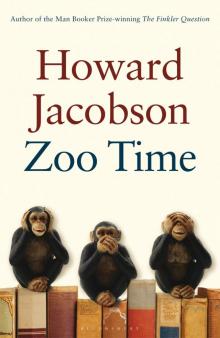 Zoo Time
Zoo Time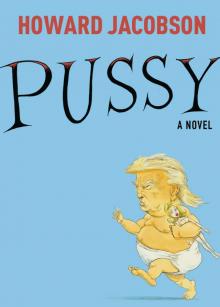 Pussy
Pussy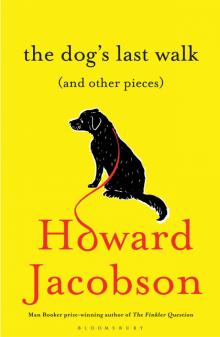 The Dog's Last Walk
The Dog's Last Walk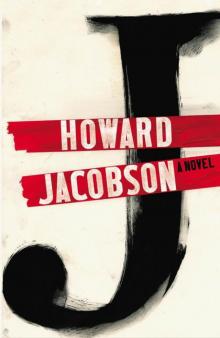 J
J Shylock Is My Name
Shylock Is My Name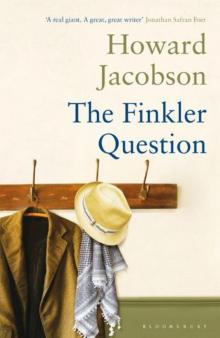 The Finkler Question
The Finkler Question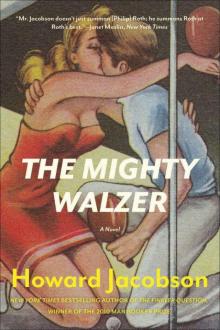 The Mighty Walzer
The Mighty Walzer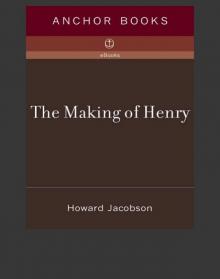 The Making of Henry
The Making of Henry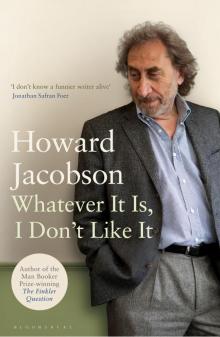 Whatever it is, I Don't Like it
Whatever it is, I Don't Like it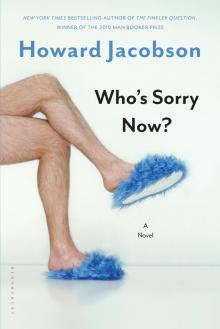 Who's Sorry Now?
Who's Sorry Now? Kalooki Nights
Kalooki Nights